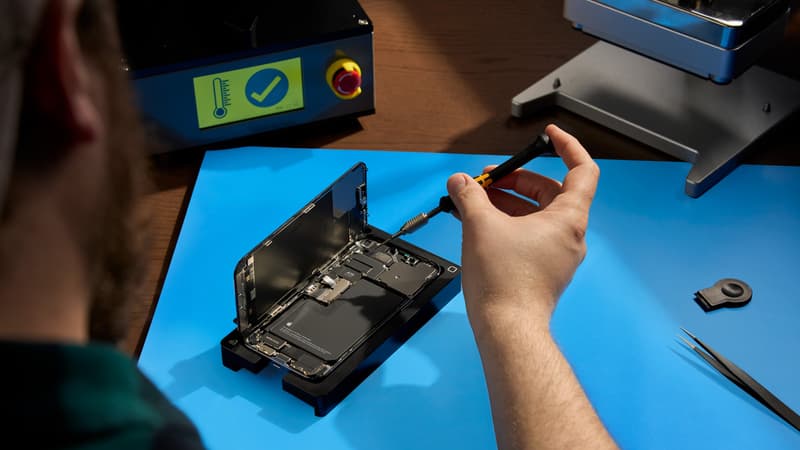In 2020, the French association Halte à l’Planned Obsolescence (HOP) had obtained Apple’s sentence of a fine of 25 million euros in the “Batterygate” case, accused of having deliberately slowed down the performance of iPhones (in particular the autonomy) to encourage the purchase of new models.
But the fight does not end there: the same organization filed a new complaint last December, accusing Apple of “planned obsolescence” and “obstruction of repair.” A request taken seriously by the Paris prosecutor’s office, which has just announced that it has entrusted an investigation to the national investigation service of the Directorate General for Competition, Consumption and Fraud Prevention (DGCCRF).
The practice of “serialization” questioned
Specifically, what is accused of Apple is the fact of having implemented a “serialization” system that would greatly limit the repair of certain components, such as the battery or the screen. Specifically, Apple assigns serial numbers to certain components and associates them with the device’s global serial number. Therefore, if another component is added to it, the smartphone cannot recognize it, even if it is identical to the original part.
The HOP association has also identified several testimonials from users who can no longer use their iPhone after a repair with a spare part not authorized by Apple. Furthermore, device malfunctions can occur after an operating system upgrade, another case detailed by HOP in its 60-page complaint report.
A violation of the right to reparation?
On the HOP blog, Apple is accused of seeking “above all to sell more and more equipment, to the detriment of consumers and the environment”, while undermining the right to repair and holding back the democratization of refurbishment and the circular economy. .
Last December, Apple announced with great fanfare the launch of “Self-Service Repair” to allow the purchase of parts and tools to repair iPhones and MacBooks. An “absurd and expensive program” according to the association that evokes the fact of having to order two 35 kg suitcases of tools to repair a simple battery.
The firm Apple, however, is proud of the efforts in the design of its devices: at the beginning of the year, the Californian manufacturer redesigned all the innards of its iPhone 14 to make it one of the most repairable smartphones on the market. However, this is not the case with the Pro version.
Source: BFM TV


